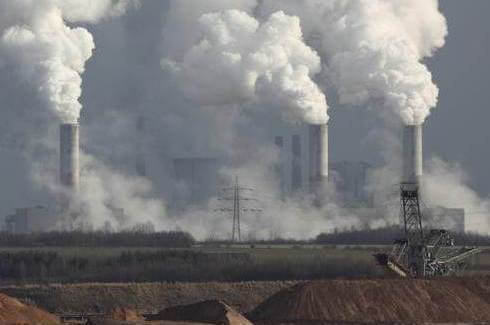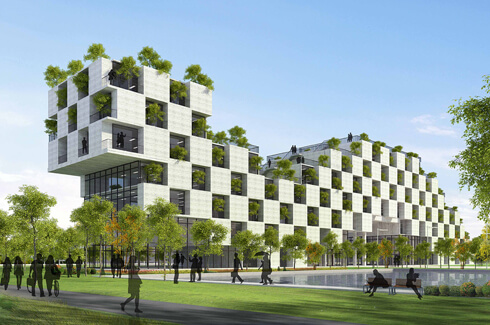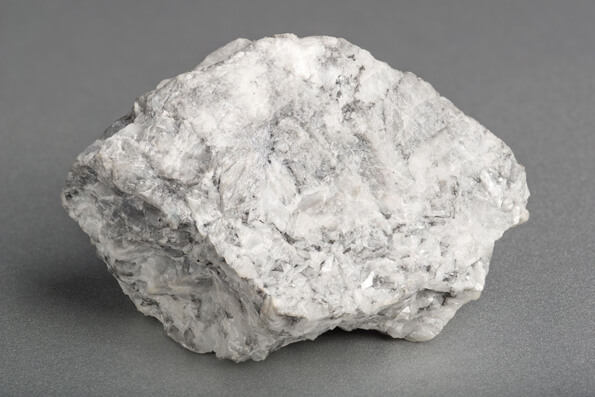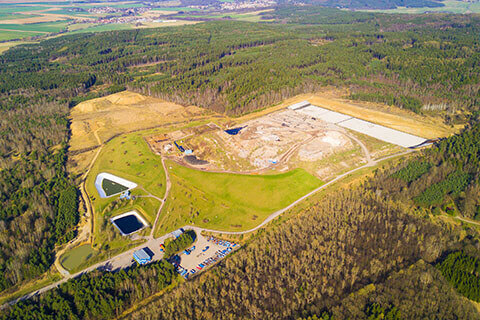Eco-Friendly and Sustainable Building Materials
We must drastically reduce our CO2 emissions to limit the Earth’s temperature rise. One of the most important questions though is how can we achieve quick results?
CO2 emission building materials
In addition to the biggest sources of CO2 emissions, such as cars, aviation, container ships and coal-fired power stations, there are also less obvious ones, like the way we build. Until today, we have depended heavily on the use of concrete for constructing commercial and non-commercial buildings and structures, making concrete the most widely used building material in the world. We need Cement in order to be able to make concrete. In addition we need a huge amount of calcium carbonate to make cement. Calcium carbonate degrades during the furnace process in amongst 56% calcium oxide and 44% CO2. We can safely estimate that the cement and concrete industry is responsible for 5 per cent of global CO2 emissions!


Is Magnesium Oxide Board Environmentally Friendly?
Many environmental benefits come with magnesium board. The curing process captures carbon dioxide. Unlike other competitive materials, the board contains no asbestos, formaldehyde, ammonia, silica, or benzene. The chloride content generally falls below 8 percent. The mining of magnesite is conducted on the surface and requires no chemicals or processes other than breaking chunks of magnesite from the mountain. Any modest amount of dust created is beneficial to the land, people, or animals it lands on.
MagPanel® - the healthiest building material compared to other materials
MagPanel® is a technologically advanced, high performance, fully recyclable magnesium oxide building material used to replace gypsum drywall, fiber cement wallboards, oriented strand board or plywood. It is a mineral based green building material. The board’s resistance to mold, mildew, fungus and extreme environmental exposure makes it the perfect building material for health-conscious builders and families. This also means no warping, swelling, or rot when exposed to water or other elements. Because it is resistant to extreme cold or heat, construction can take place in virtually any environment, at any time, and in any season. In conclusion our solution leads directly to a 50% cut of the total amount of CO2 emissions.
| MagPanel® MgO | Oriented Strand Board (OSB) | Exterior Gypsum Sheathing | Dry Wall | Cement Siding | |
|---|---|---|---|---|---|
| Fire Resistant Walls | | | | | |
| Insulated Panel | | | | | |
| Fascia | | | | | |
| Soffits | | | | | |
| Subflooring | | | | | |
| Structural Sheathing | | | | | |
| Rot Resistant | | | | | |
MgO construction material has a much lower CO2 emission than comparable products like concrete (CaO)...thus resulting into a smaller carbon footprint and usage of water.
- MiningMgO: 60 kg/t
CaO: 60 kg/t - ExtractingMgO: 200 kg/t
CaO: 600 kg/t - ShippingMgO: 140 kg/t
CaO: 60 kg/t
An Environmentally Friendly Building Material for Building Healthier Homes
MagPanel® offers excellent impact strength which increases the lifespan of homes and buildings.
Resistance to fire, mold and insects increases the lifespan of homes and buildings.
MagPanel® is made from natural magnesium sulfate, an abundant and earth-friendly compound.
MagPanel® is made using low-energy manufacturing processes, reducing carbon footprint.
MagPanel® is not made with any toxic materials and is considered landfill friendly.
Captures carbon dioxide CO2 during the curing process.
Our Commitment to the Environment
1. Mineral Components
- No Volatile Organic Compounds (VOCs).
- No heavy metal salts
- No crystalline silica
- No hexavalent chromium
- No asbestos
- No toxic antifungal additives


- Used extensively in soil and groundwater remediation.
- Used in wastewater treatment.
- Used in drinking water treatment.
- Used in air emissions treatment.
- Used in waste treatment industries.
In comparison to the extremely high energy required cement-based products, MagPanel uses a patented low energy manufacturing process. The entire process is conducted at room temperature and scraps are reground and recycled.
